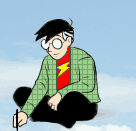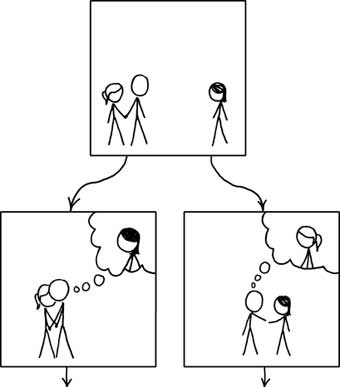Cartoonists: Do you know that what you put in your panels is potentially far more interesting than how well you draw it?
Archive for ‘Thoughts’
Rivers and Brooks
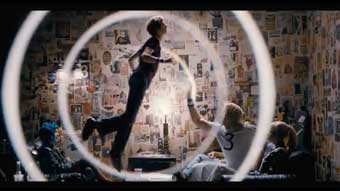
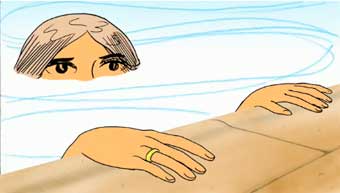
First of all, you knew I would link to the new Scott Pilgrim Trailer, so here it is (link via everyone on Earth).
Also in the news [via The Beat in my case] is a teaser trailer by Dash Shaw and Frank Santoro for an animated feature-to-be called The Ruined Cast (co-produced by John Cameron Mitchell who, I discovered a few years back, looks a bit like Ron Regé when not in Hedwig make-up, but that’s neither here nor there).
Funny thing is, when looking at the two trailers rubbing shoulders in their separate browser tabs, and considering how different they were, I realized there was a big part of my old ’80s-era lizard brain that wanted to label them “mainstream” and “alternative”—even though those terms have mutated beyond recognition in the last ten years.
After all, O’Malley’s comic, for all its rabid fans, is hardly the X-Men (and Edgar Wright is hardly James Cameron). The Scott Pilgrim movie is more geared to “mainstream audiences” than Shaw and Santoro’s project, but both have their roots in what my generation would have unhesitatingly championed as independent sensibilities.
Maybe, the best way for me to get a handle on what “mainstream” means is to just go to what I assume is the root of the term and look to see where the money flows like a big river; and know that rivers split all the time.
Learning How to Learn
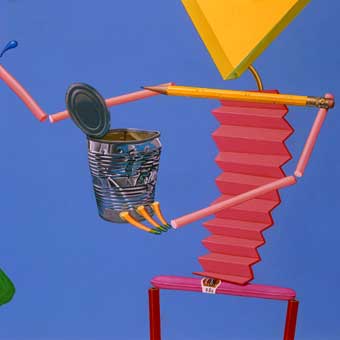 Yesterday’s trip to the post office box brought a welcome surprise: a great collection of paintings by Kathy Calderwood, one of my art teachers at Syracuse University thirty years ago.
Yesterday’s trip to the post office box brought a welcome surprise: a great collection of paintings by Kathy Calderwood, one of my art teachers at Syracuse University thirty years ago.
Kathy was one of the cool teachers at S.U., who enjoyed cartoon iconography and didn’t discriminate against “low” arts like comics. Others included Larry Bakke who drew from nearly every discipline in his aethetics lectures, and Murray Tinkelman, who had a Krazy Kat original and was tennis partners with Will Eisner.
I was always grateful, in retrospect, that the faculty at Syracuse were as open to comics as they were. Positive attitudes about comics weren’t nearly as common then as they are now.
For all the encouragement I got for my comics, though, I always figured I was at Syracuse to learn everything else. There were things I learned during classes in poetry, music appreciation, theater, and animation that I still use today. Making comics requires so many skills and areas of knowledge, hardly anything I learned was ever really wasted.
In junior year something clicked. I started auditing classes and going to the library more and visiting local museums. I realized that no one was going to be grading me past the age of 22 and no one could ever be as invested in my progress as I was. I was learning how to learn.
Thanks to all my teachers from kindergarten onward, who helped me get to that point.
Why??

1.
Why is nearly every ice bag in nearly every ice bucket in nearly every hotel in America too small for the bucket??
2.
Why do Zuda’s webcomics blur needlessly between pages??
3.
Why is it so hard to find black bottled ice tea without any kind of sweetener in it?? (Especially in NYC)
4.
Why is it so hard to find official confirmation (instead of just message board chatter) on whether uncooked French green beans are really toxic or not (something I hadn’t even heard of until recently, but is apparently a “well known fact” in Europe—WTF??).
5.
How can the employees at my local UPS office watch as people go in the wrong door due to the bad signage, day after day, month after month, year after year, FOR TEN YEARS yet never think to change the signs??
(Okay, that’s not something anyone can answer, but I had to get it out of my system).
6.
Why are some people so passionately devoted to the movie Apollo 13? I mean, it’s a perfectly competent movie, and the box of junk scene is awesome, but what’s the big deal??
7.
Why did it take centuries for people to realize they could put wheels on suitcases?? Is there another super-obvious design solution that we’re overlooking??
Random Thought
Forgive me if somebody has already said something like this, but is it possible that the Web has made it harder for others to lie to us and easier for us to lie to ourselves?
I’m thinking of how, on the one hand, governments and corporations are having trouble suppressing all kinds of unflattering info (yes, even in China), while fringe groups with extreme beliefs are able to erect comfy feedback-loop houses for others of their kind to dwell in and congratulate each other for being right.
In other news, anyone who disagrees with yesterday’s post about being open to criticism is just jealous of my shoes.
On Criticism
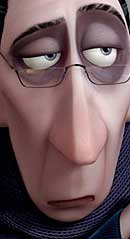 Lately, I’ve been thinking about the role of criticism, specifically negative reviews of comics and how they tend to be received by the creative individuals involved.
Lately, I’ve been thinking about the role of criticism, specifically negative reviews of comics and how they tend to be received by the creative individuals involved.
For myself, I always consider reviews useful—even the hatchet jobs. It makes my heart sink a little when I hear other artists dismiss all reviews as irrelevant to their process. A common claim is that reviews tell us “only about the reviewer” and tell us “nothing about the work,” but I disagree. Yes, reviewers have biases. Yes, they miss the point sometimes. But there’s always some kind of information embedded in any reaction to any creative effort.
Take an extreme example:
Suppose you’re a cartoonist, and ten years ago you made a casual remark about some political issue in an interview or on a panel. A stranger decides they don’t like you, based entirely on this one remark.
Ten years later, you’ve just published your first graphic novel. You’ve poured your heart into it. It’s a thousand pages long, it’s everything you wanted it to be. And an online review site hires that same stranger to review the book.
Still upset about the political remark you made a decade earlier, the stranger-turned-critic savages your magnum opus, tears it to shreds, all the while clearly referencing a perceived political position which has nothing to do with the book, and is nowhere in the book. All negatives. No positives. All based on that one remark from ten years ago.
If you were that cartoonist, you could easily dismiss such a review. You could easily say that a bitter, biased, petty review like that is a classic example of a completely useless review, that it told you “only about the reviewer” and told you “nothing about the work.”
But you’d be wrong.
Because even in that extreme example there was a vital piece of information about your work that was worth paying attention to: The simple fact that your art and/or story were insufficiently powerful to overcome a grudge.
And that’s information worth having.
Patterns
Just a footnote really, but it reminded me how much the Web has enabled us to find patterns in the world that surely would have gone unnoticed just a few years ago…
Some of you might remember this post where I compare and contrast comics by Lisa Hanawalt and Laurie Sandell. I just found out a parallel between the two authors that I couldn’t have known at the time: both authors have parents from Argentina.
How do I know? ‘Cause Lisa’s Mom just emailed me.
And this after going for a walk yesterday and being told via Twitter that someone else’s Mom has been talking to author Bill McKibben about going to Sunday school with me almost 40 years ago.
How many years, I wonder, before the Great Internet Coincidence Database hits critical mass?
One-Bit Universe
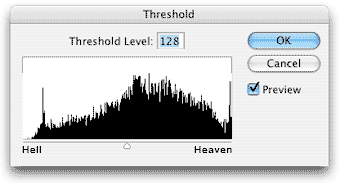 Marjane Satrapi would like you to sign a petition (thanks to Mark Siegel for the link).
Marjane Satrapi would like you to sign a petition (thanks to Mark Siegel for the link).
Yesterday, some cartoonists I know expressed sadness over Michael Jackson, which I understand. Personally, I thought it was a sad ending to a sad ending. But others were baffled by how anyone could sympathize with anyone accused (and presumed guilty) of such horrible things.
Fortunately Adobe just released a new Photoshop filter for just such occasions (screenshot above). I like to work in grayscale and RGB myself, but some out there might find it useful.
[Hypocrisy disclaimer: Anyone wanting to knock me off of my high horse can just point out my own rant about Fredric Wertham on that audio interview the other day. Guess we all do it from time to time.]
The Shape of Story
One of the byproducts of all those ancient infinite canvas debates (nestled in webcomics history right after the Clone Wars and shortly before the Norman Conquest) was the idea of the spatial nature of story structure.
So many of the terms we use for stories (rising action, turning points, parallel/intersecting plots, circular narratives, multiple layers…) have equivalents in space, it seems only natural to make them literal through comics.
It may sound academic to some, but I think the very fact that comics MAPS TIME is pretty frickin’ cool, and I’ll never get tired of seeing smart cartoonists screwing around with it.
Turn-Styles
I think that the biggest reason readers get upset when cartoonists change styles suddenly is because all their favorite characters are suddenly replaced by *drawings* of their favorite characters.
Just a random thought, but it led to this unexpectedly interesting discussion on Facebook, so…





